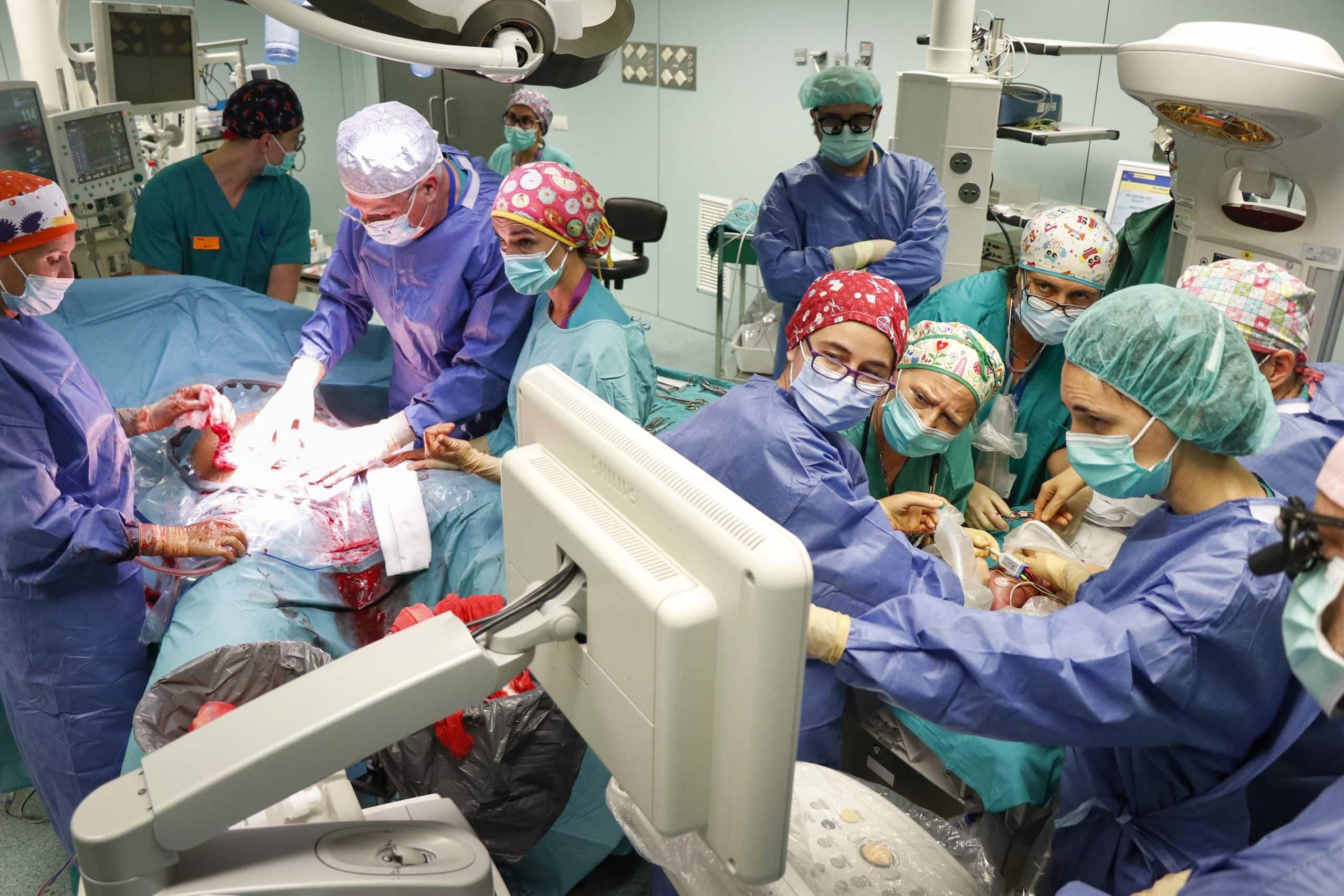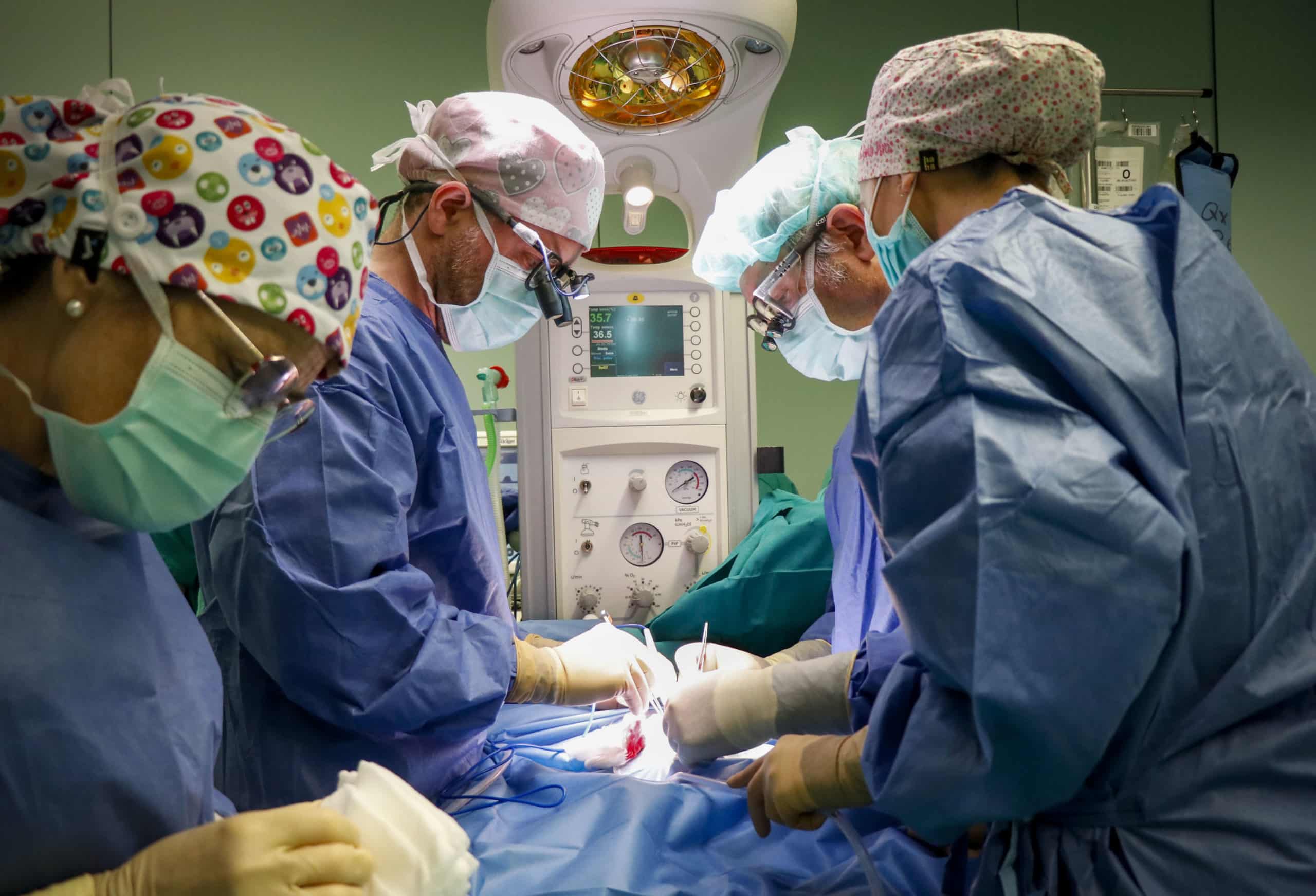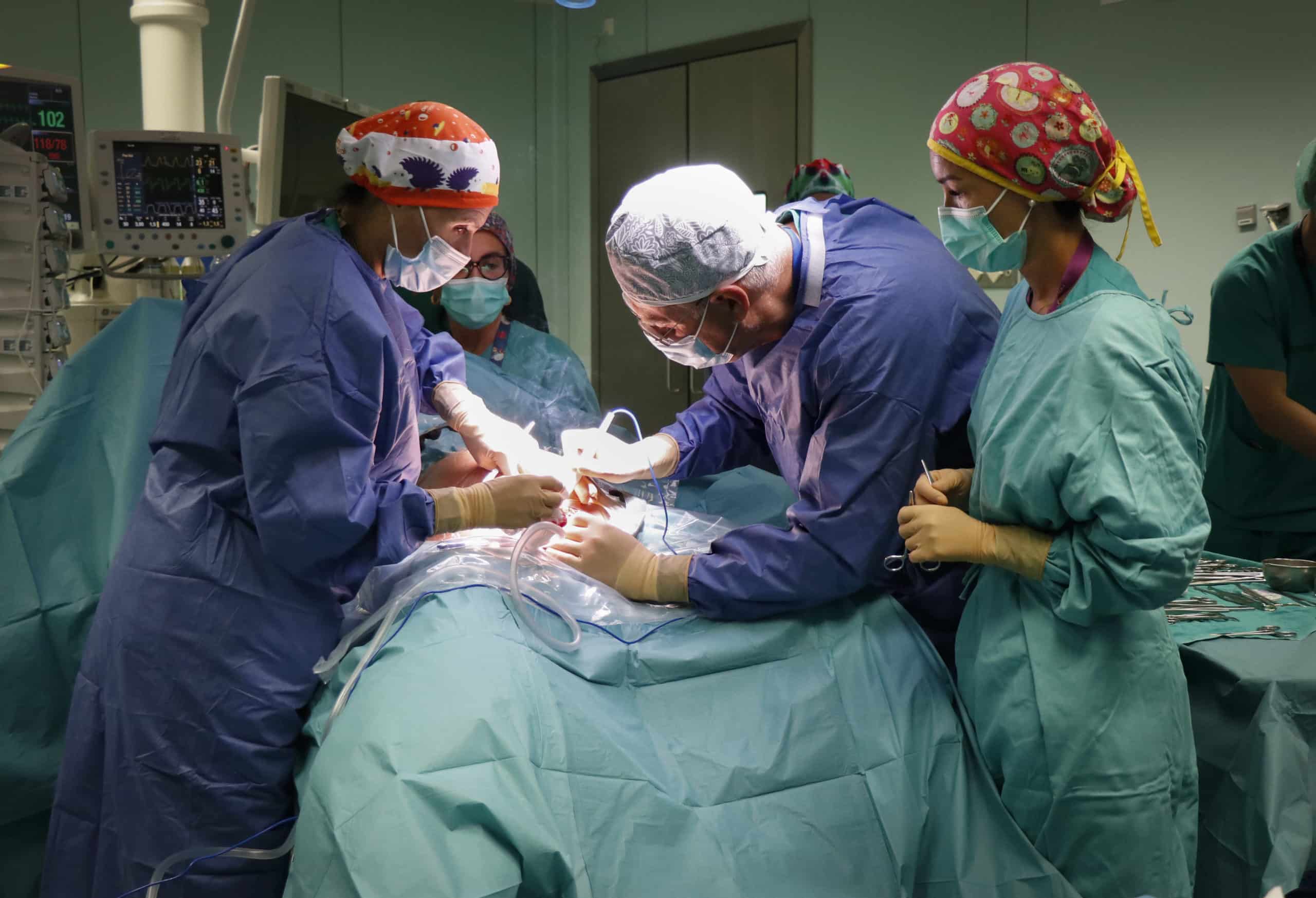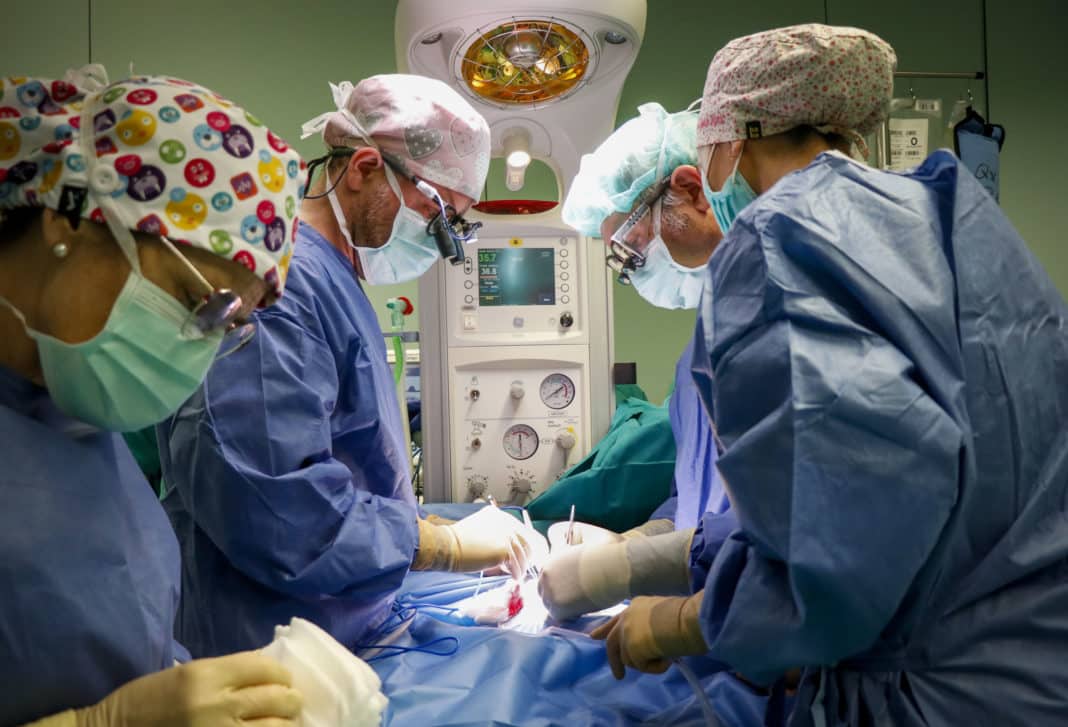The Hospital Universitari i Politècnic La Fe in Valencia has successfully performed, for the first time in Spain, a surgical intervention to remove a cardiac tumour from a baby still in the mothers womb.
It was a rare cardiac tumour known as pericardial teratoma that was diagnosed in the 24th week of pregnancy (five and a half months) and that was spreading aggressively, compressing the heart and neighbouring structures, therefore, threatening the life of the baby and the mother.
Doctors initially decided on intrauterine management with obstetrics performing techniques to relieve tumour compression in order for the baby to complete weeks of gestation and avoid premature birth. In week 28 of gestation, that is, at six and a half months, it was decided to extract the baby by caesarean section, weighing only 900 grams.
According to Raquel Escrig, head of the Neonatology section, “the complexity of the procedure, due to the characteristics of the tumour, meant that the patient could die immediately after cutting the umbilical cord that held her to the mother, so “We had to keep it attached to the placenta while the patient was stabilised and the surgical procedure began.” This is the technique known as EXIT (Ex Utero Intrapartum Treatment).
The operation was performed by more than thirty professionals, consisting of two complete surgical teams: one for the mother with obstetric anesthesiology and specialists in obstetrics and gynecology; and the second for the baby, with neonatology, pediatric anesthesiology, pediatric surgery, pediatric cardiology and children’s cardiac surgery, in the same operating room.
For several days, the surgery was studied and rehearsed, recreating the scenario through clinical simulation. It is the first time that this type of operation has ever been carried out in Spain.
After the caesarean section, the baby girl was kept alive thanks to the placental assistance provided by her mother.
Sonia Garcés, specialist in pediatric anesthesiology at La Fe Hospital, explained that “this is an exceptional case because it was a premature baby. There are few reports in the scientific literature of children who, at such an early stage, have survived this type of cardiac tumour without complications.”
The patient required further surgery two months later by the pediatric surgery services, pediatric cardiac surgery, pediatric anesthesiology and the Pediatric Intensive Care and Resuscitation Unit to remove remains of the tumour that had grown again. After two cycles of chemotherapy in children’s oncology at Hospital La Fe, the patient is now free of the disease.
According to the manager of Hospital La Fe, José Luis Poveda, “the coordination and experience of the professionals at our hospital have been the key to the success of this operation. “This was a very complex challenge that represents a fundamental milestone in the treatment of cardiac tumours in premature babies.”








